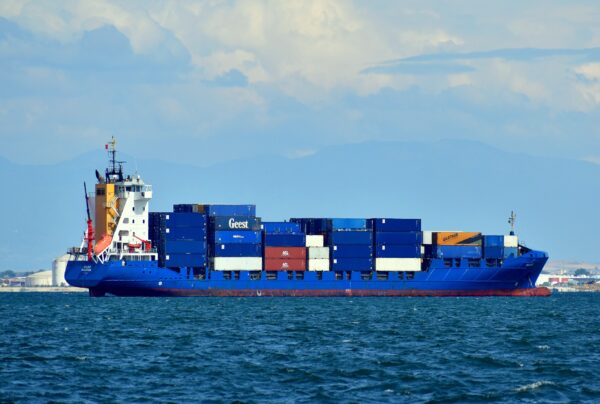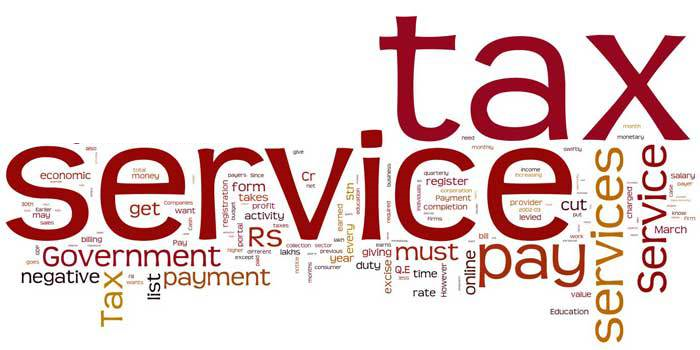The Honorable Supreme Court has recently in the case of M/s Vellanki Frameworks pertaining to erstwhile CST Law has held that sales effected to the end-buyers after filing of bill of entry are not imports but inter-State Supplies and thus such sale is not eligible for exemption from payment of sales tax.
Facts of the Case:
- The appellant, Vellanki Frameworks filed the petition against the common judgment and order whereby, the High Court of Judicature at Hyderabad for the State of Telangana and the State of Andhra Pradesh upheld the assessment orders passed by the Commercial Tax Officer, Chinawaltair Circle and held that the transactions in question were not the sales in the course of import but had been inter-State sales, liable to Central Sales Tax; and denied the exemption claimed under Section 5(2) of the Central Sales Tax Act, 1956 while granting time to the appellant to produce the prescribed C-Forms to the assessing authority for availing the benefit of concessional rate of tax.
- In all, seven transactions of similar nature, form the subject matter of these appeals; one relating to the assessment for the year 2005-06 and others relating to the assessment for the year 2006-07. The common salient features of all these transactions had been that they were for the supply of timber from a foreign country and were allegedly executed in a similar fashion thus: The supplier (party number 1) sold the goods in question to the first buyer (party number 2) and delivered them at the port of shipment. Thereafter, while the goods were in transit on high seas, party number 2 transferred the goods to the appellant (who was invariably party number 3 in these transactions) by endorsing the bill of lading in favour of the appellant. Further to this and while the goods were on high seas, the appellant allegedly transferred them to the end-buyer (party number 4) by endorsing the bill of lading in favour of the end-buyer.
- In each of the transactions, when the goods in question reached the port at Visakhapatnam, the appellant carried out the proceedings envisaged by the Customs Act, 1962 and filed a bill of entry for warehousing and thereafter, filed another bill of entry for home consumption (ex-bond). On the basis of such bills of entry, the appellant was duly assessed for customs duty.
- The appellant later on raised debit notes on the end-buyers.
- The case of appellant had been that it had only acted as an agent of the end-buyers while filing the bills of entry; and the sales of the goods in question to the end-buyers, being the sales taking place in the course of import of goods into the territory of India, were eligible for exemption from payment of sales tax by virtue of Section 5(2) of the CST Act.
Order of Supreme Court: Deliberations and Ruling
- The effect of raising of debit notes by the appellant on the end-buyers has its own bearing in the present case. The appellant had admittedly raised such debit notes on the end-buyers but only after having cleared the goods by filing the bill of entry for home consumption. Once the suggestion about the second high seas sales is not accepted and it is found that the appellant had been the importer of goods and had cleared them for home consumption, the natural consequence of raising such debit notes on the end-buyers situated in different States and movement of goods to such end-buyers would be to take these transactions in the category of inter-State sales in terms of Section 3(a) of the CST Act. The appellant was not entitled to the exemption of Section 5(2) of the CST Act and has rightly been held liable for tax over inter-State sales.
- After the appellant got the goods released by filing a bill of entry for home consumption, indisputably, the goods were ultimately received by Radha at Lucknow in the State of Uttar Pradesh (and other end-buyers in different States) and the appellant raised debit notes from the State of Andhra Pradesh. These facts are sufficient to establish that the movement of goods inside the country from one State to another had been on account of the sale by the appellant to the end-buyers, and such sales took place only after the appellant obtained the goods from the bonded warehouse for home consumption.
- Once the appellant got released the goods after filing the bill of entry for home consumption, the import stream dried up and the goods got mixed in the local goods. Any movement of the goods thereafter was bound to be a sale under Section 3(a) of the CST Act, and such movement being from the State of Andhra Pradesh to other State, it had been a matter of inter-State sale.
- The principle that actual sale may not necessarily precede the movement of goods, in its true effect, operates rather against the appellant in relation to the sale to end-buyers after the goods were cleared for home consumption.
In view of above deliberations , the division bench of Justices A.M. Khanwilkar and Dinesh Maheshwari observed held that they are clearly of the view that the claimed exemption under Section 5(2) of the CST Act has rightly been denied to the appellant and the High Court has been justified in dismissing the writ petitions filed by the appellant. The High Court has yet been considerate and gave time to the appellant to submit C-Forms for availing the benefit of concessional rate of tax. No case for interference is made out.
READ / DOWNLOAD ORDER:
***
Subscribe our portal and get FREE Tax e-books , quality articles and updates on your e-mail.
Resolve your GST queries from national level experts on GST free of cost.
Frah Saeed is a law graduate specializing in the core field of indirect taxes and is the Co-founder of taxwallah.com. She has authored many publications on GST and is into full-time consultancy on GST to big corporates. She as a part of taxwallah.com heads a team comprising of Chartered Accountants and Advocates and plays a key role in our mission to disseminate GST knowledge to all.



